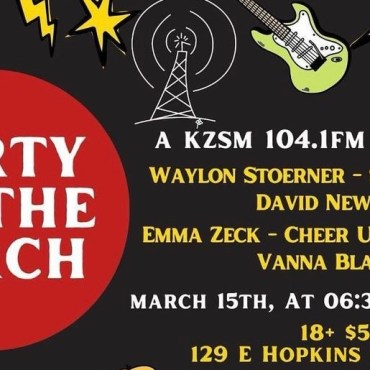Listeners:
Top listeners:
-
play_arrow
KTSW 89.9

By Gena Sysavath
Web Content Contributor
Many people like to believe that naps are only meant to be taken by young children or older people; however, that is not necessarily true. Studies show that naps are beneficial for adults too. By taking naps, you can be feeling both the good and the bad effects. Depending on how long your naps are or when you take your naps, you can be living a healthy or unhealthy lifestyle.
Keep in mind that like everything else, naps are not for everyone. Sometimes people just cannot sleep anywhere else but their bed or they are having a hard time sleeping during the day. But to those who do take naps, this means that you can either benefit or harm your health.
The Positives
If you were to take a short nap between 10-30 minutes during mid-afternoon (between 1-3 p.p.), there are many benefits to come, such as:
- Restored alertness
- Psychological help (keeps your mental health in check)
- Reduced fatigue
- Improved mood
- Enhanced performance (quicker reaction and better memory)
- Eased stress
- Improved overall health (this depends)
The Negatives
However, if you take a longer nap (one hour and over), you are likely to face more harm than good:
- You can cause serious health conditions (cardiovascular disease, diabetes, and metabolic syndrome)
- You can lower life your expectancy
- You may experience problems sleeping at night
- You can have lower cognitive functioning
- You may experience sleep inertia: the groggy or disoriented feeling after a long nap
Stigmas
Sometimes napping leads people to believe you are lazy, lack ambitions or have low standards. However, napping is convenient in the idea that it is like a free pill. If you nap responsibly, you can be more alert, protect your heart, lower your blood pressure and cultivate your creativity. In a generation where sleep deprivation is normal, considering a nap can be very positive for your health.
However, a recommended amount of time for a nap is at most half an hour, as anything more may do damage to your body. As neuroscience professor Matthew Walker said, “All humans, irrespective of culture or geographical location, have a genetically hardwired dip in alertness that occurs in the midafternoon hours.”
Therefore, napping is a biological response. People sometimes feel tired out by midday and taking a nap can stave that off. So, if you are sleep deprived or maybe feel like you want to relax, you might want to consider that nap.
A couple of drawbacks to napping would simply be that if you nap too long, your sleep inertia will screw you over. You will feel groggy and disoriented which in turns will cause you to take longer before you are ready to start working again, and unlike a shorter nap, you are also more likely to forget. Also, it can cause nighttime sleep problems if you experience insomnia or any other poor sleep quality, and naps can worsen the condition.
You should only consider napping:
- When you are feeling very fatigued, or unexpected sleepiness
- If you have had lack of sleep or will have a significant amount of sleep loss, like a long work shift or maybe a vacation.
- If you are trying to add it to your routine
So, take them if you need them, but make sure it is 30 minutes or less, because anything over can harm you. I believe that you guys can nap responsibly now.
Featured image by Gena Sysavath.
Share this:
- Click to share on Twitter (Opens in new window)
- Click to share on Facebook (Opens in new window)
- Click to share on Tumblr (Opens in new window)
- Click to share on Pinterest (Opens in new window)
- Click to share on Reddit (Opens in new window)
- Click to email a link to a friend (Opens in new window)
- Click to print (Opens in new window)
Similar posts
This Blog is Propery of KTSW



Post comments (0)